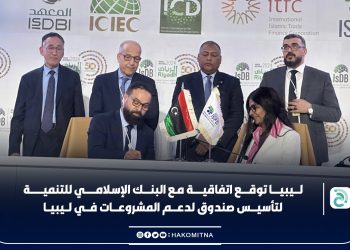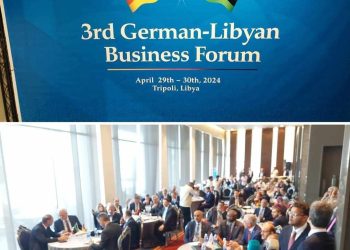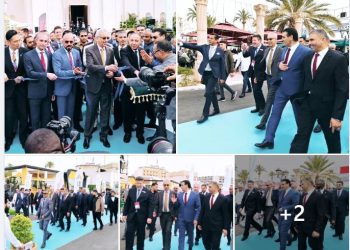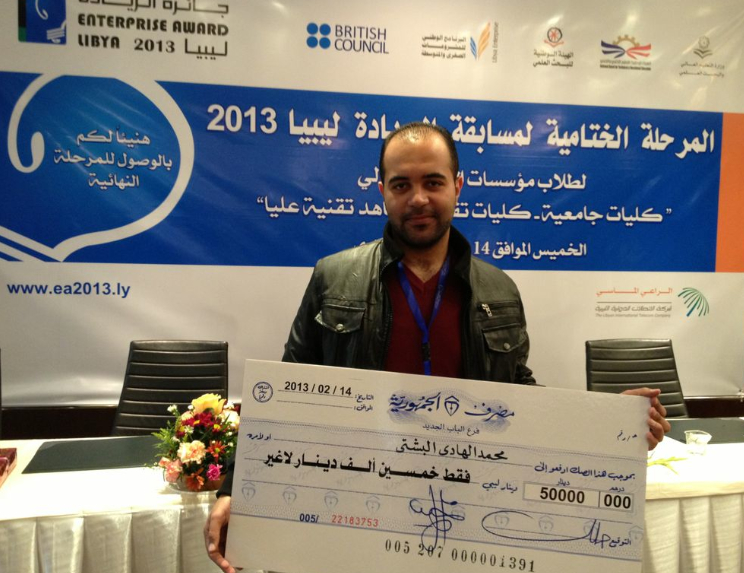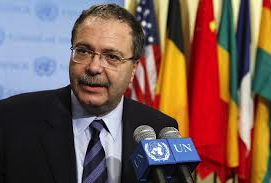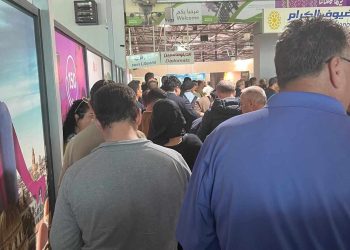By Ahmed Ruhayem.
Benghazi, 14 February 2013:
Businessmen and political leaders in Benghazi have approved a proposal to set up an organisation to . . .[restrict]promote the city’s economic growth.
Meeting yesterday, Wednesday, at the Great Man-Made River headquarters, some 40 business leaders, local council representatives and civil society activists approved the founding of Benghazi Economic Council.
The project has been in development for some time according to Naser Burwis, president of Benghazi Economic Club. “Over the past few months”, he told the Libya Herald, “a number of independent public discussions and seminars dealing with Benghazi’s development have taken place – but without any coordination between organisers. So, in discussions back in January with the local council and other interested stakeholders, the idea of unifying resources and efforts by setting up an Economic Council was first discussed.”
Yesterday’s meeting included a significant number of leading businessmen, seen as a sign of the importance of the project. All were in agreement with the proposal although there was some debate about the inclusion of government economic institutions in the council. However, Abdelhamed Elarbi, president of Libyan Manufactures and Food Traders Council, suggested that everyone should be given an opportunity to contribute. This was accepted.
Elarbi is nonetheless a firm believer in the role of the private sector in driving Libyan growth. “The business community’s leading role in contributing to the economic development of our city is consistent with its previous efforts as in the early days of the revolution when business community guaranteed the availability of food supplies, medicines and baby milk,” he said recently.
The meeting appointed a 14-member committee to set up the council. According to Mohammed Eljibali, the administrator of Benghazi Local Council’s Office of Economics and Finance, the process is expected to take between a month and a month and a half. There will have to be announcements in the press, a provisional constitution drawn up and promises of funding secured, he said, before a meeting formally establishing the body could take place.
Once established, “the members of the board of directors will include civil society members and businessmen as founding members along with academics, specialists, government officials and union representatives as consulting members,” he expained. “The main objective of the Benghazi Economic Council is to contribute to the economic policies and identify sustainable economic development opportunities through open public dialogue and discussion.”
Benghazi Local Council member Ahmed Ben Mousa told the Libya Herald that the council was “very happy” to support the initiative – politically, administratively and financially. “Benghazi is facing a number of economic problems including unemployment, commercial inefficiencies and overdue projects. We also need to encourage international business to return and work with us in Benghazi.”
Mustafa Darrat, president of the Libyan Business Union, said that rules and regulations in Libya have to be fairer and enforced. “It does not make sense when a small minority owns a majority of the country’s business and wealth.”
[/restrict]



